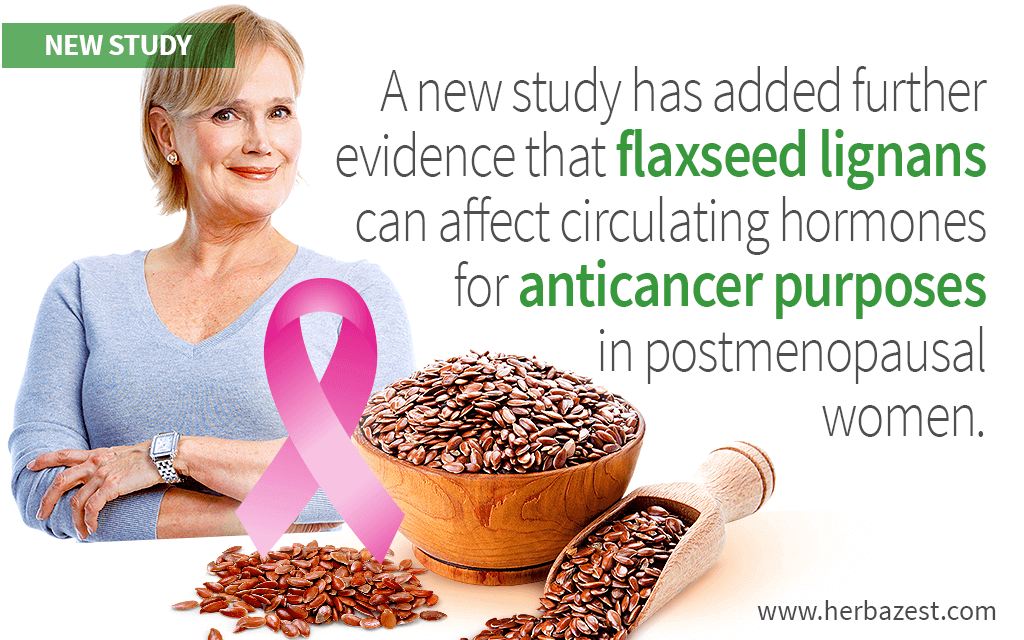As women transition into their infertile years, the levels of reproductive hormones, namely estrogen and progesterone, undergo drastic changes. With such an imbalance of circulating hormones comes a range of potential health risks for postmenopausal women, including breast cancer.1
Lignans - a class of phytoestrogens, or plant-based estrogenic compounds - are found in various foods, like flax, and are commonly used to relieve PMS and menopausal symptoms. Although there has been evidence that lignans as exogenous estrogens exert anticancer properties, previous studies had significant lacks and called for further research.
As such, this study aimed to determine the effects of the richest source of lignans, flaxseed, on circulating sex hormones in postmenopausal women in terms of potential uses of flaxseed for breast cancer prevention.
The Study
This randomized controlled trial, named The Women's Flaxseed and Health Study, was done in Toronto, Canada. The results were published in the Journal of Nutrition and Cancer.
The trial involved randomly selected 99 postmenopausal women between the ages of 57 and 64 who were not regularly consuming flaxseed and other lignans-rich foods or supplements. Participants were divided into two groups.
The intervention group consumed two tablespoons (15g) of ground flaxseed daily for seven weeks. The control group, on the other hand, was instructed to maintain their usual diets and avoid flaxseed or other foods with lignans. Serum levels of 14 sex hormones were measured before the beginning of the study and at its completion.
The Results
After seven weeks of daily flaxseed consumption, researchers have observed significant changes in estrogen metabolites, specifically increased levels of 2-hydroxyestrone and an increased 2:16α-hydroxyestrone ratio. Additionally, the levels of circulating enterolignans have significantly increased.
What Does this Mean?
This research is important as it offers further clues that are needed to fully understand the link between flaxseed and breast cancer, particularly the effects of its lignans on reproductive hormones in postmenopausal women.
Because some estrogen metabolites have been found to increase breast cancer risk and high 2:16α-hydroxyestrone ratio has been linked to a decreased risk of breast cancer, finding ways to naturally modulate estrogen metabolism opens doors to the use of flaxseed lignans for anticancer purposes in middle-aged women.2
Other hormone-balancing herbs include soy, aguaje, maca, and black cohosh.
Sources
- Journal of Nutrition and Cancer, Effect of Dietary Flaxseed Intake on Circulating Sex Hormone Levels among Postmenopausal Women: A Randomized Controlled Intervention Trial, 2018
Footnotes:
- Office on Women's Health. (2018). Menopause and your health. Retrieved October 30, 2019 from https://www.womenshealth.gov/menopause/menopause-and-your-health
- Annals of the New York Academy of Sciences. (2009). Estrogen hydroxylation – the good and the bad. Retrieved October 30, 2019 from https://www.ncbi.nlm.nih.gov/pubmed/19250192




